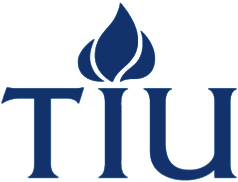Trinity International University launched into its "Mission Activation Plan Process" at the beginning of the 2021–22 academic year, making strides toward becoming a more agile university in response to the increasing challenges facing institutions of higher education in a post-pandemic world.
Across the United States, institutions of higher education, and especially private liberal arts colleges, have been recoiling from an overall drop in college and graduate enrollments for more than a decade. This,
along with many other challenges, not least the incommensurate cost of education, have led to a slew of closings, mergers, acquisitions and other consolidations among colleges and universities in the U.S.
over the past six years.
Since coming to Trinity in 2019, President Nicholas Perrin has sought to respond to these challenges by strengthening Trinity’s business model, which includes creating institutional efficiencies, ensuring best practices in marketing and enrollment, building a more student-responsive culture internally, and implementing a data-driven Mission Activation Plan Process (MAPP).
In its first year of MAPP, Trinity brought in two consulting firms to help inform its plan. Fuller Higher Ed Solutions assessed capacity and resources with a series of faculty and staff interviews, and BKD CPAs and Advisors assessed the financial sustainability of academic programs with a a course-level margin analysis and a market study. This led further to the collaborative efforts between administration and two faculty working groups. An adjacent goal has also been to foster a new way of thinking at Trinity: that given the challenging trends in higher education, this will be an ongoing process of institutional reflection, real engagement with market realities, university resources, enrollment outcomes, and mission vitality.
"Together with our God-given vocation as stewards, we have a responsibility to examine ourselves as an organization," said Trinity President Nicholas Perrin. “I firmly believe that by God’s grace and through prayerful collaboration, Trinity will close out this journey stronger than it is today—and much better poised to execute the mission God has given us.”
For 125 years the Lord has faithfully been using Trinity to advance his kingdom, and university leadership is striving to steward that gift well by following God’s lead in prayerfully and strategically planning the next chapter of the Trinity story.
Learn more:
Trinity's Mission Activation Plan: The Next 125 Years

